Valverde the top favourite for Liege-Bastogne-Liege after record Fleche Wallonne win
'I wasn't born for football, I was born to ride bikes,' says Spaniard
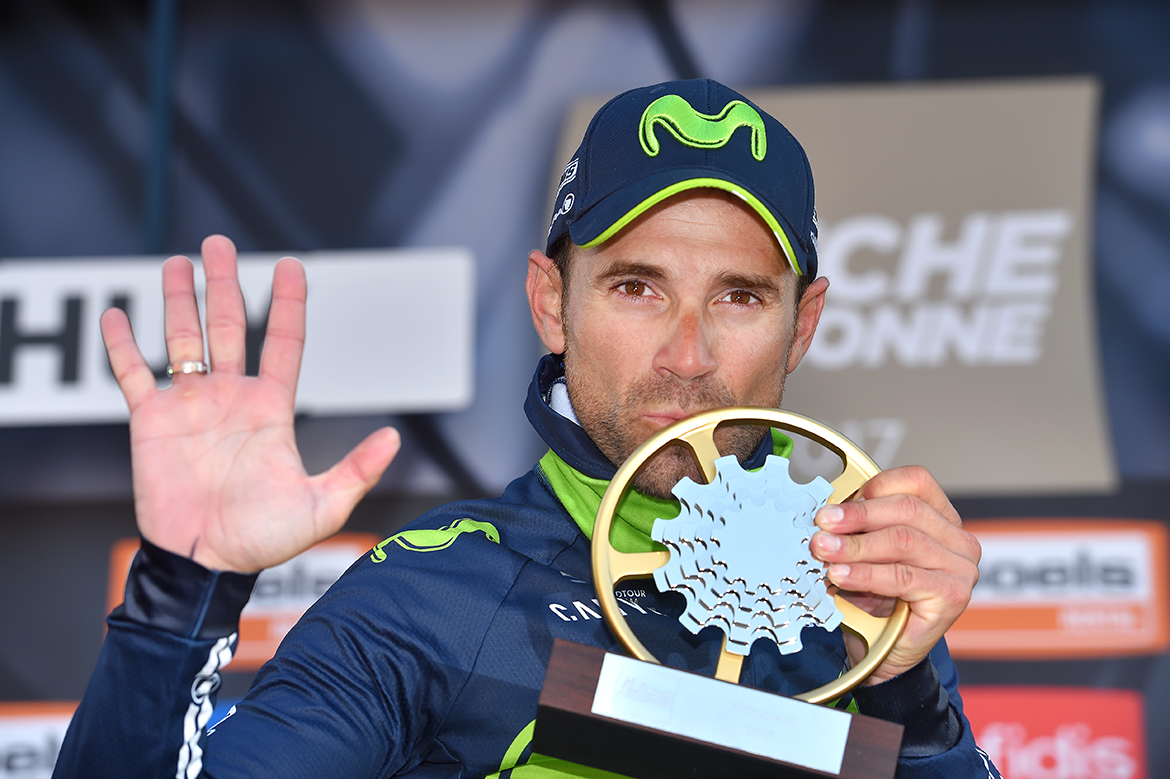
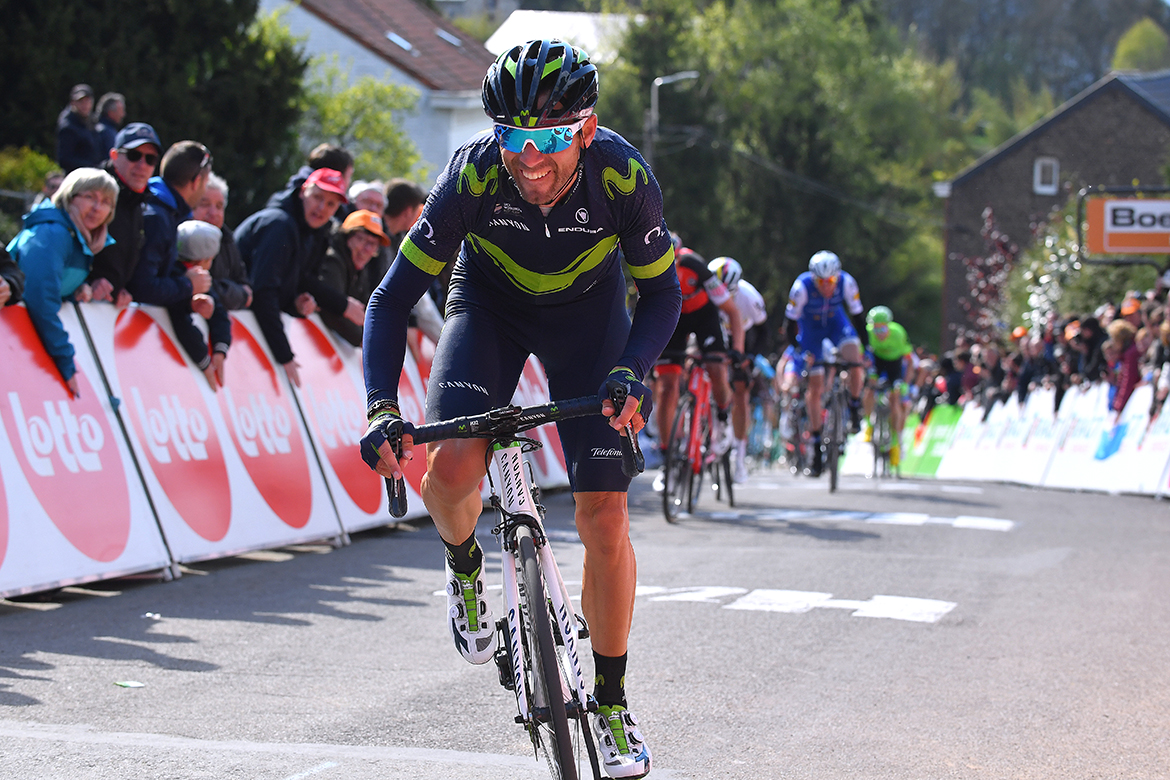
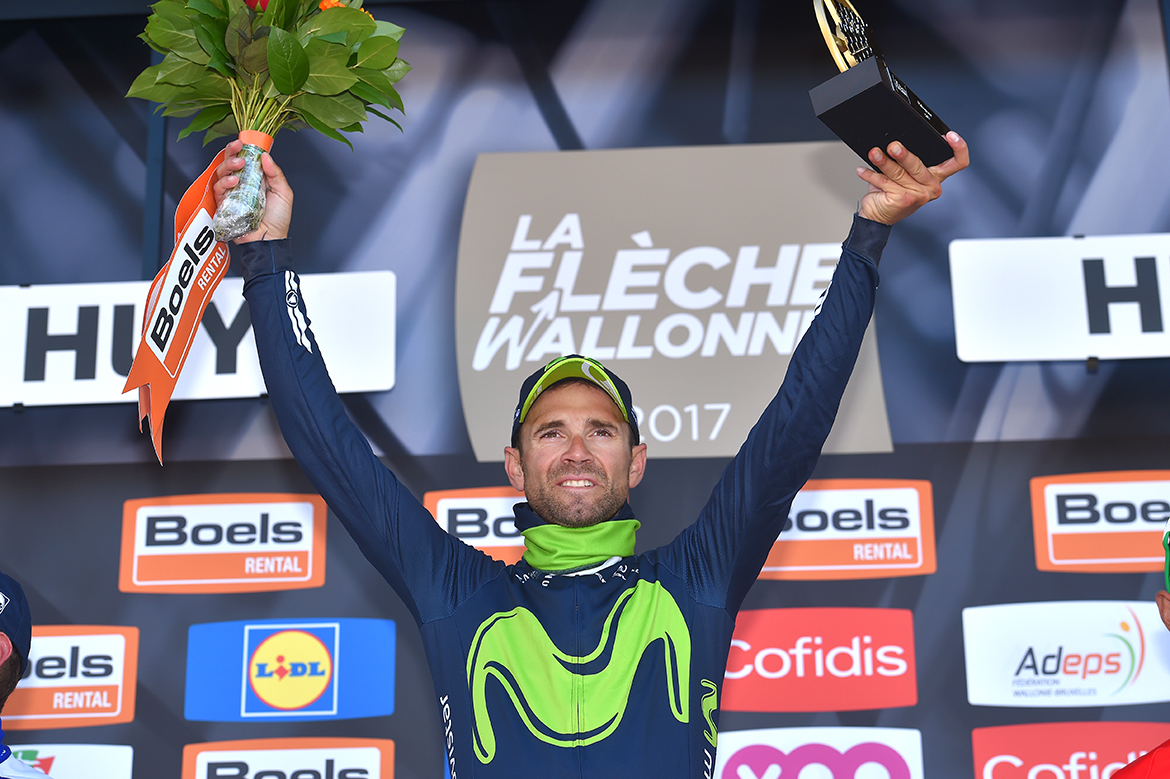
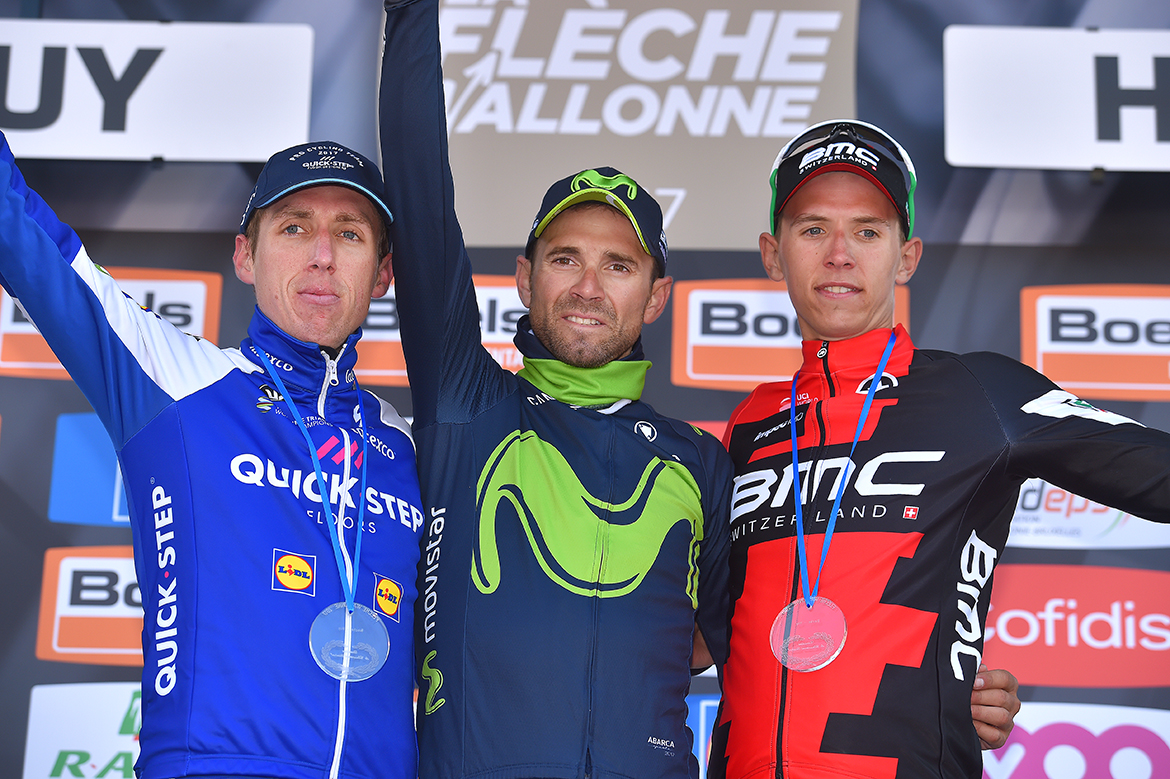
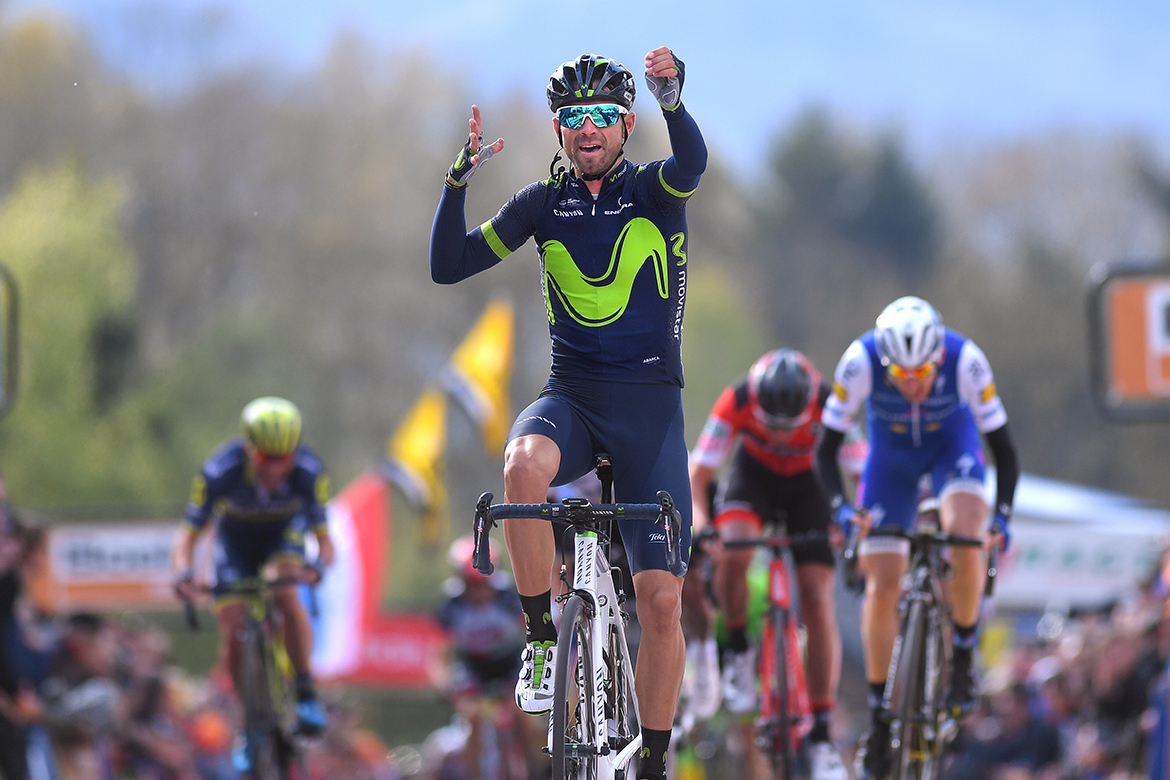
Ten days after he celebrated his first ever victory in the Vuelta al País Vasco, Alejandro Valverde (Movistar) returned to more familiar winning terrain in Belgium on Wednesday as he clinched his fifth Flèche Wallonne, and fourth in a row, of his career.
Poels disappointed to miss out on chance to defend Liege title
Valverde wins his record fifth Fleche Wallonne
Kwiatkowski concedes to Valverde's domination of Fleche Wallonne
Dan Martin: Maybe I've got to wait for Valverde to retire to win Fleche Wallonne
Gutsy late attack by Jungels fails to foil Valverde in Fleche Wallonne
Prudhomme defends Fleche Wallonne finale as Valverde racks up the wins
Liege-Bastogne-Liege 2017 preview
Valverde prepared to take up mantel as top favourite for Liege-Bastogne-Liege
Valverde will once again be the top favourite in Liège-Bastogne-Liège this Sunday. La Doyenne is a race he has already won three times, and given his current state of form and the ease with which he dominated the field in Flèche Wallonne, it would seem foolhardy to bet against the Spaniard drawing equal with Italian Classics star Moreno Argentin and securing a fourth victory in Liège this weekend.
The writing was on the wall even before Valverde racked up nine wins in three months this spring. After all, Flèche Wallonne is a race so suited to the strongest talent in Valverde’s skillset - a steep uphill sprint - that Valverde had only his own Flèche record of four wins to beat this Wednesday.
Will it stop there for Valverde? Nearly 37, an age when other stars such as Tom Boonen have opted to hang up their wheels, Valverde forges onward, and he told Belgian journalists that he has no intention of stopping just yet. A sixth Valverde Flèche win is therefore a distinct possibility.
“I wasn’t born for football, I was born to ride bikes,” Valverde said as he eyed journalists in the winner’s press conferences in Huy. “I’ve got a great family, and a great team, so when everything works like that, of course you can do better. I’m also much more relaxed than I used to be, so now I can race to enjoy myself. And what do I enjoy doing? Winning.”
Asked by one journalist how it would be possible to beat him at Flèche, Valverde retorted that it was not for want of trying on his rivals' part this year. There had been more attacks than ever before in the closing kilometres, from BMC and Quick Step in particular, “and everybody was going for it, they tried to wipe out my team.”
He conceded that a degree of collaboration from Orica-Scott in the closing kilometres had been more than welcome, “and I had three or four teammates with me when I got to the finale. Being in the right position on the climb, I knew I could win.” He made a point of thanking all of his team, too, “regardless of where they were in the finish, but who had the race under control ever since we left the start this morning.”
Get The Leadout Newsletter
The latest race content, interviews, features, reviews and expert buying guides, direct to your inbox!
Once Jose Joaquin Rojas and 2013 Flèche winner Dani Moreno guided Valverde into position at the foot of the Mur, the Spaniard’s initial mission was to watch and wait for the right moment to attack. Curiously, he partly contradicted Dan Martin (Quick Step Floors), who had said there was a headwind on parts of the climb. Valverde argued instead that “it was only a headwind up until the final kilometre and then when you turned right onto the climb it was a tailwind."
That change in wind direction was crucial, Valverde argued. “With a tailwind I knew I could wait for longer, I was a little further back than usual for longer, until when my teammates dropped back, I moved to the front and controlled it all. I had no doubt that I had to be there on the front, because that way, you can pick your line on the curves better, where the road is steepest, and on the outside it’s less steep.” At that point on the Mur, having watched as the field shredded itself to pieces on the climb from an ideal vantage point, Valverde could attack almost at his pleasure - which he did, at his ‘standard’ distance of 200 metres from the line.
Valverde politely rejected the half-serious idea put forward by one journalist that he might come to buy a house in Huy, given his success rate in the city, saying that he was far happier at home in Murcia, where the weather was always hot. But he was less averse to a trip to the rainier climes of Norway this September to try for a race which has always eluded him: the Road World Championships.
“It used to be an obsession, but it isn’t any more,” Valverde, who holds the curious record of most podium places in the Worlds at six, but, as yet, no victory. “Who knows what might happen this time?” And after Valverde’s best ever spring campaign since 2002, taking a World Championships this autumn is surely not beyond him by any means.
Meanwhile, Valverde can enjoy yet another victory on a climb that he first mastered in 2006 and which he has shown no sign of stopping yet.
“Even though it might seem easier, it was just as difficult as the other four wins I got here. There's no secret: you need to be in perfect form and have no doubts about how to reach when someone jumps in the final metres,” he concluded. “No one had four victories here, and now that I've got five, it seems like it will be a record very hard to beat.”
Alasdair Fotheringham has been reporting on cycling since 1991. He has covered every Tour de France since 1992 bar one, as well as numerous other bike races of all shapes and sizes, ranging from the Olympic Games in 2008 to the now sadly defunct Subida a Urkiola hill climb in Spain. As well as working for Cyclingnews, he has also written for The Independent, The Guardian, ProCycling, The Express and Reuters.
